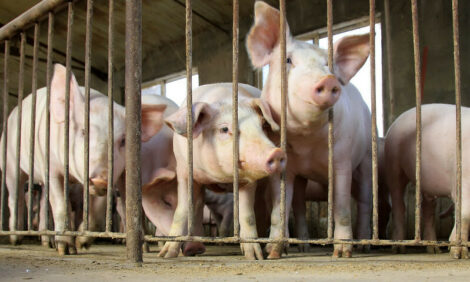



Beef Industry Supportive of Meeting BSE Testing Targets
CANADA - The Alberta beef industry recognizes the importance of BSE surveillance testing and is committed to helping Canada meet its international testing requirements says Alberta Beef Producers (ABP) Chairman Arno Doerksen.
The Gem-area rancher made the comment in response to
erroneous reports that cattle producers are not cooperating with BSE
surveillance programs.
Last week, the Alberta Auditor General's report on BSE-related assistance
programs recommended that Alberta Agriculture, Food and Rural Development
(AAFRD), working with the federal Canadian Food Inspection Agency (CFIA) and
the beef and related industries, ensure that Alberta meets its contribution to
Canada's BSE testing quota.
"In comments to the report, the Auditor General discussed the importance
of producers presenting sufficient numbers of samples from older animals for
testing. Subsequent comments by representatives of CFIA and resulting news
clips have implied that producers may not be cooperating with the surveillance
testing initiative leading to delays in borders opening to Canadian beef,"
says Doerksen.
"That, in fact, is not the case and the suggestion that ranchers have
been careless or uncooperative with regard to testing protocols is offensive
to cattle producers and we need to set the record straight."
The CFIA and AAFRD have been working on a program since March 2004 to
facilitate the collection of BSE test samples. The intent of the program is to
offset some of the costs of BSE surveillance testing for the cattle industry.
Beef producers continue to wait for both levels of government to finalize
program details.
"Progress on the surveillance program has been hampered by the fact that
important logistical elements to facilitate the collection of samples are
still not in place," says Doerksen.
"That program needs to be implemented and well-communicated to cattle
producers and the industry as soon as possible to ensure Canada meets
international testing requirements."
Canada is on target to meet its national BSE surveillance target of 8000
higher-risk animals this year. Alberta's share of the national total is
approximately 2,700 animals of which 900 have been tested so far this year.
The national surveillance target for next year will increase to 30,000
animals.
"Currently Alberta producers who wish to participate in the surveillance
program are faced with paying the costs of collecting and submitting samples.
It is not feasible to expect producers to bear the full costs of submitting
samples after the economic impacts of a year of drought and a year of BSE,"
says Doerksen.
"While producers are concerned about the potential impact of the
discovery of additional BSE cases, we believe the main hindrance to producer
participation in BSE surveillance testing is the fact the program has not yet
been finalized by government."
"The impact of trade restrictions due to the discovery of a cow with BSE
in Alberta last May has been devastating. Typically the beef industry has
contributed a $2 to 3 billion trade surplus to the Canadian economy and we are
eager to return to those days again. Meeting our surveillance testing
requirements will help the industry regain additional export markets,"
concludes Doerksen.
The chairman and vice chairman of the Alberta Beef Producers will be
available for media interviews concerning BSE surveillance testing and other
industry issues from 11 am to 1 pm at the ABP office, 320, 6715 - 8th Street,
Calgary. Interested media who are unable to attend should call the ABP office
at (403) 275-4400 to make special arrangements.
Source: CNW Telbec - 9th August 2004






